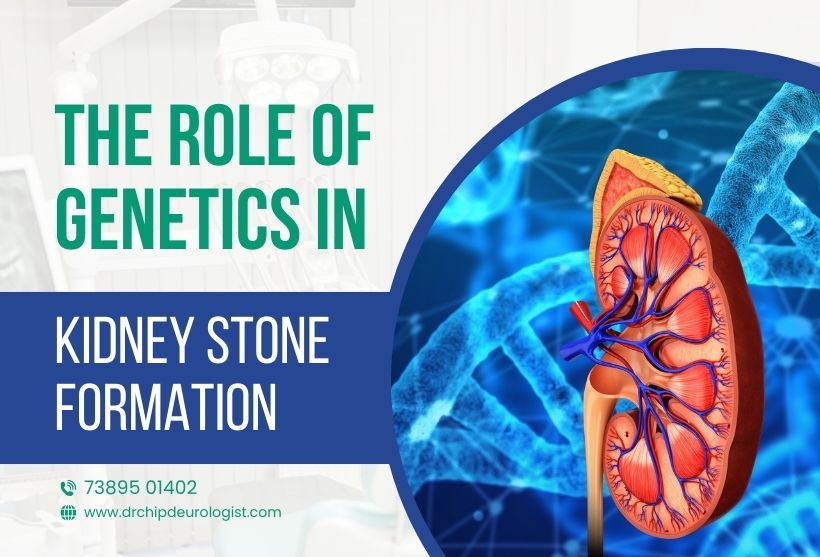The Role of Genetics in Kidney Stone Formation

Kidney stones are a common condition, but with the advancement of modern treatments, they are highly manageable. While factors such as diet and fluid intake play an important role in the development of kidney stones, genetics can also have a significant impact. Certain genetic traits can make individuals more prone to developing kidney stones, as they influence how the body processes specific minerals and compounds.
In this blog, we will delve into the role of genetics in kidney stone formation and examine why some people may be more likely to experience them than others. By understanding these genetic factors, we can enhance our approach to preventing and treating kidney stones, offering more targeted and effective solutions for those at risk.
How is a Kidney Stone Formed?
Kidneys act as the body’s natural filtration system, removing waste, excess fluids, and acid while maintaining a coarse balance of water, salts, and minerals like sodium, calcium, and potassium in the blood. Every minute, approximately one liter of blood flows into the kidneys through the renal arteries, where impurities are filtered, and clean blood is returned to the body.
However, when this balance is disrupted—through dehydration, high levels of certain minerals, or an imbalance in urine pH—minerals like calcium, oxalate, and uric acid can crystallize and clump together, forming kidney stones. Over time, these stones can grow in size, making it difficult to pass the urine.
Drinking at least 2 liters of water and maintaining a balanced diet are essential to reducing the risk of stone formation and ensuring optimal kidney health. Water supports vital bodily functions, including flushing out toxins, promoting healthy kidney function, and less concentrated substances in the urine that can lead to stone development. Proper hydration acts as a natural defense against the buildup of minerals and waste, reducing the risk of kidney stones and maintaining urinary health.
Understanding Kidney Stone Formation at the Genetic Level
Kidney stones often form due to an imbalance in the body’s ability to process and excrete minerals like calcium, oxalate, and phosphate. While factors like diet and hydration play a significant role, genetics also contribute to the risk of developing kidney stones.
Specific genes, such as CASR, CLDN14, and TRPV5, regulate calcium balance, reabsorption, and signaling in the kidneys. Mutations in these genes can lead to higher calcium levels in urine, creating an environment conducive to stone formation. Similarly, genes like ALPL and KL influence phosphate metabolism, and dysfunction in their activity can contribute to calcium phosphate stone formation. Genes such as AQP1 and MGP regulate water transport and calcium deposition, and their disruption can lead to concentrated urine and crystal accumulation.
Genetic predisposition to kidney stones can often run in families, increasing the risk for individuals with a family history of the condition. Inherited mutations may affect the body’s ability to metabolize certain substances, leading to higher concentrations of stone-forming compounds in the urine. If you have a family history of kidney stones or experience recurrent episodes, it’s essential to seek professional guidance.
When to Consult a Doctor?
Common signs of kidney stones include sharp pain in the lower back or sides, the presence of blood in the urine, nausea, and vomiting. Other symptoms may involve fever, chills, and urine that appears cloudy or has an unpleasant odor.
If you are looking for kidney stone treatment in Indore, you can visit Dr. Saurabh Chipde’s clinic, a urology specialist, to explore the options for kidney stone treatment and relieve your pain of kidney stones.
